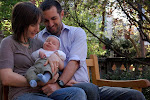Arriving at Kimironko, on a busy day, around twenty young teenage boys hop in the back of our truck, run alongside shouting into the windows, and clamor among themselves who was first. Once out of the truck there is no such thing as personal space and everyone wants a job telling you what they will do: "I will watch your car", "I will hold your bag", "I will translate", "I will get the best price", "I will find mangos, you want mangos?" Followed by a crowd of job seekers, a mzungu walking through the market draws a lot of attention and sales pitches.
The first time this happened, I wanted to turn around and go home. It was way too much stimulation for me; every sense was overwhelmed with foreignness, bewilderment. I was so sure the market was going to be one of my favorite places and I left after that first visit with a headache and no food. I was so disappointed. We can shop at Nakumatt, no big deal- I told myself. But even though Nakumatt is most assuredly an African experience, Kimironko is where Kigali shops. Kimironko would have been a good place to get to know our neighbors.
A couple weeks later Rob talked me into giving it one more try. "I just want to find where it is", he said. I didn't want to go; not at all. I did; however, want to be on board for his second stop, so I reluctantly agreed. I spent the whole trip memorizing Kinyarwanda phrases that would be helpful for dealing with the attention and before I was ready we were there.
We pulled down the bumpy dirt road and I picked the first boy that ran along with our car, asked him his name and said "David, You watch our car? Cent francs? Okay. No one else." David kept the other boys away from his sale as we parked. And I when I got out and the others started to ask if they could watch our car I smiled politely and said, "No, It's David" and kept walking into the market. If you're wondering, paying someone to watch our car is not at all necessary. And makes no sense to me, but it's just something I presume all mzungus are expected to do. For one thing 100 francs is not going to persuade any teenage boy to stop someone from stealing our Truck, two, no one would try to steal our truck there, and three, the market has parking attendants who we also pay 100 francs. I digress.
Boys asked to hold my bags as we walked in and I said plainly and simply, "No, Don't Need." "Oya, Mwarakoze." Now, it's true that your bags can get very heavy depending on how much you're shopping. Think no buggy, just bags. So, one day I probably will accept their offer, but I thought it was important to start out as self sufficient and "normal" as possible. And as far as needing someone to translate; if someone wants to sell to you, you can always find a way of understanding each other. Along with the guys in the post office helping me with my currency vocabulary, I'm coming along nicely with market communication.
I found that as I established a clear set of boundaries and communication, I had more ease to move about the market freely with less boys tagging along and less shouts of sales directed my way. I was able to make friends with the women selling vegetables and stop and chat with the store front owners. I began to enjoy the market like I wanted to.
I now frequently go to the market with friends and it has become one of my favorite things to do. But, becoming assertive here has definitely been a longer process. In the hustle and bustle of a market setting a definite no, is sometimes the only one heard. I don't think so, translates into try harder. And in a bargaining culture, the idea of not negotiating a price out of politeness-sake is absurd. I've had to drop my softening words and phrases, like maybe and kinda and probably; these words just make sentences longer and confuse the listener. When giving instructions to people who are helping us, I have to be clear and concisely lay out terms and expectations.
It took a lot of effort at first, to be bolder and more direct. My stomach would knot up and looking back I probably used a lot more words than necessary to get my wants across. But slowly, it's become easier and my preference. In the end, it saves more strife to communicate clearly from the start so that people understand you better. Along with adjusting to a new culture comes an adjustment to how you use your own cultural tendencies-or should I say personality - in your new setting. I've had a communication adjustment and am now a much bolder happier girl.




No comments:
Post a Comment